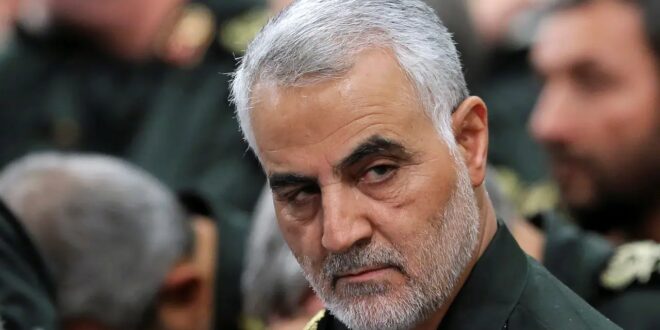‘Soleimani’s assassination is an achievement, since our main enemy, in my eyes, are the Iranians,’ the head of Israeli Military Intelligence says
Israel played a role in the assassination of Iranian Revolutionary Guards’ Quds Force commander Qassem Soleimani, who was killed in an U.S drone strike near Baghdad in January 2020, the outgoing head of Israeli Military Intelligence has stated.
In an interview with the Israel Intelligence Heritage and Commemoration Center published last month, former IDF intelligence chief Major General Tamir Hayman described the killing as one of “two significant and important assassinations” during his tenure, the other being Islamic Jihad leader Baha Abu al-Ata.
Hayman finished his tenure as IDF intelligence chief in October.
“Soleimani’s assassination is an achievement, since our main enemy, in my eyes, are the Iranians. Two significant and important assassinations can be noted in my term,” Tamir said, adding that Israel has carried out multiple operations to disrupt the spread of Iranian weapons and funds throughout the region.
Soleimani was involved in Iranian military activity in many countries, including Iraq, Afghanistan and the Caucasus states, and was considered one of the people closest to Iran’s supreme leader, Ali Khamenei.
Several days after he was killed, NBC News reported that Israeli intelligence helped the United States to assassinate Soleimani. According to the report, informants at the Damascus international airport tipped off the CIA about the time Soleimani’s plane took off for Baghdad, while Israel confirmed the intelligence provided to the Americans.
Last week, Axios reported that former U.S. President Donald Trump told Israeli journalist Barak Ravid that he felt manipulated by Jerusalem, stating that he “was very disappointed in Israel having to do with that event” and that former Prime Minister Benjamin Netanyahu had been “willing to fight Iran to the last American soldier.”
 Eurasia Press & News
Eurasia Press & News




